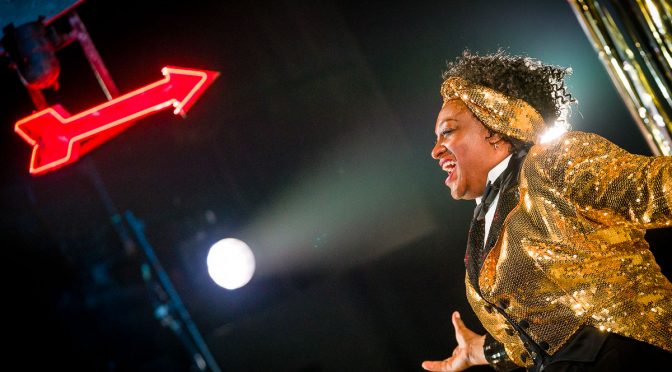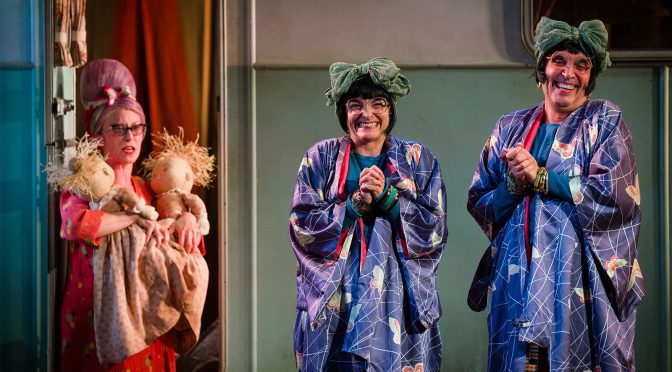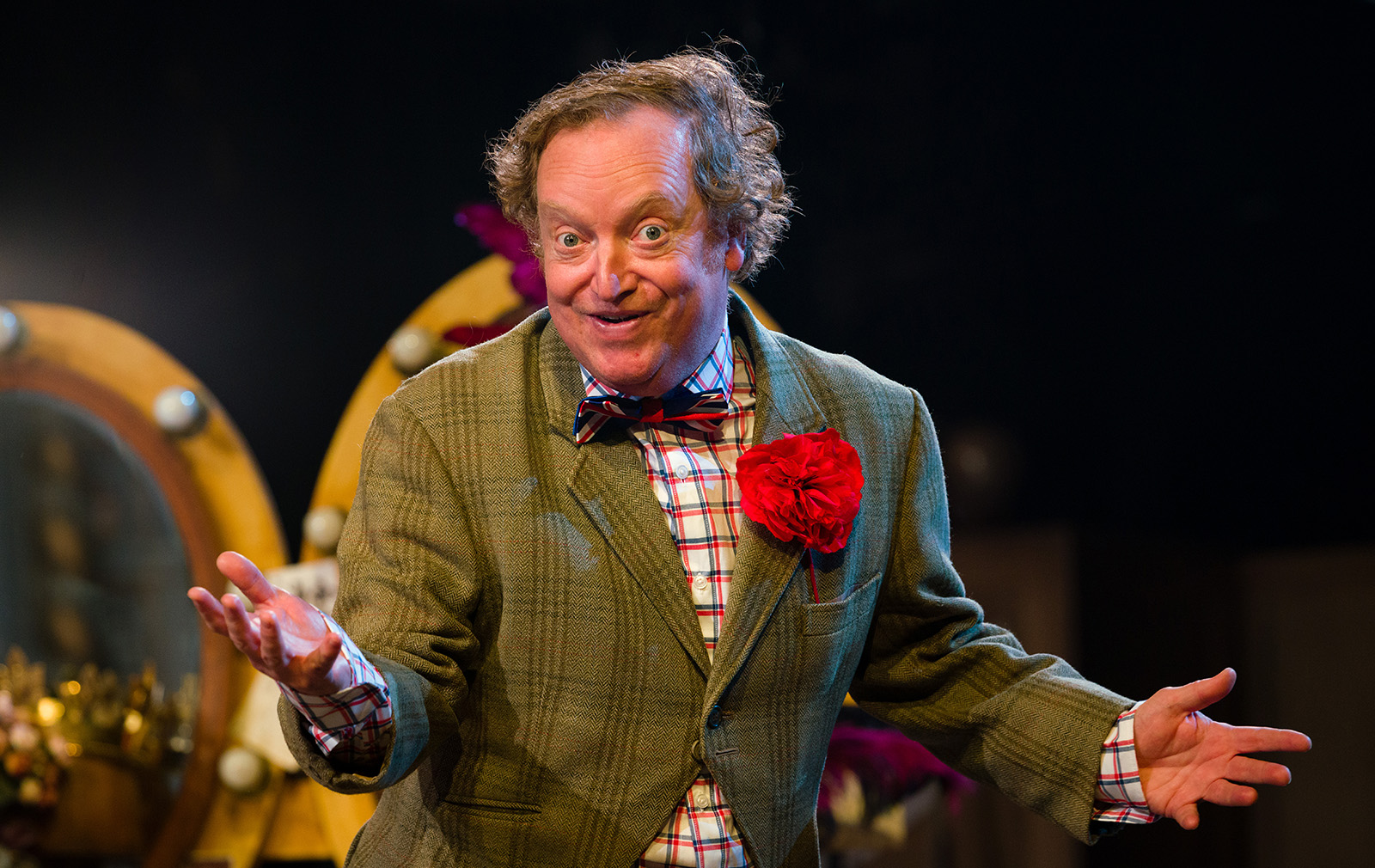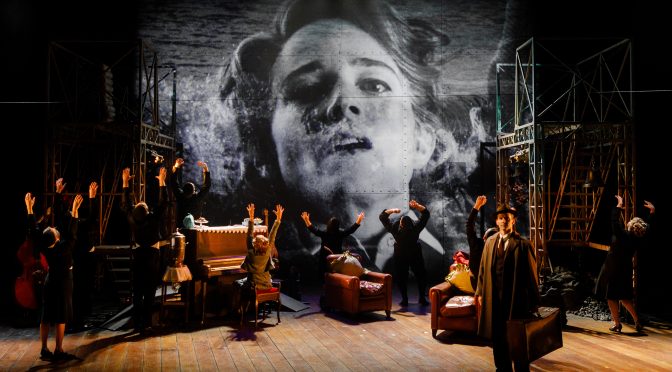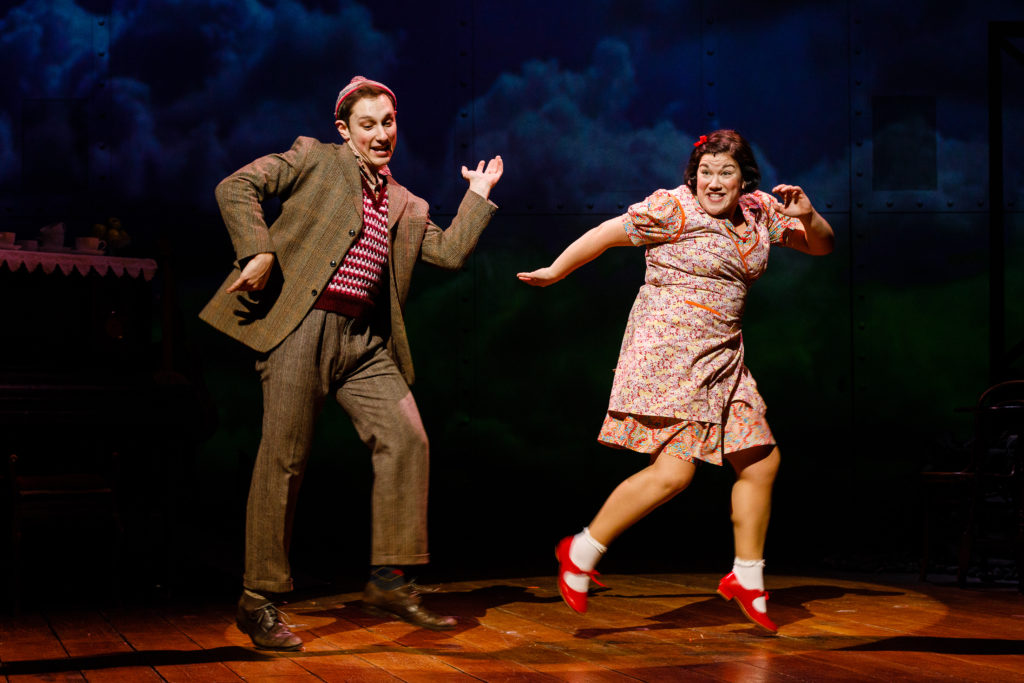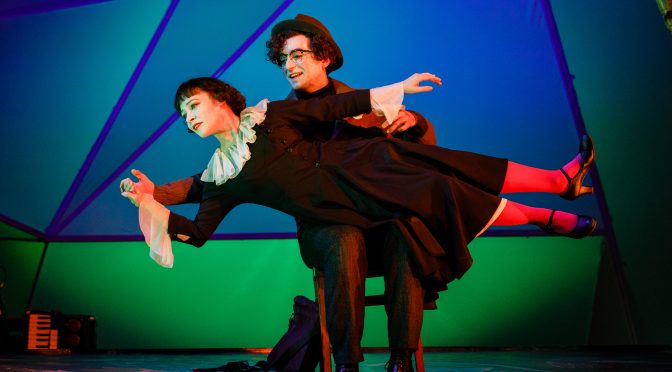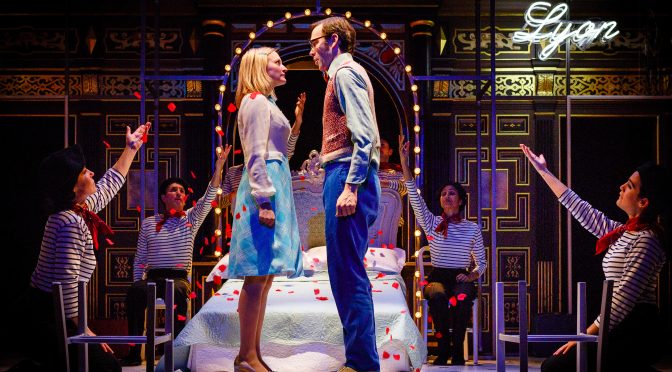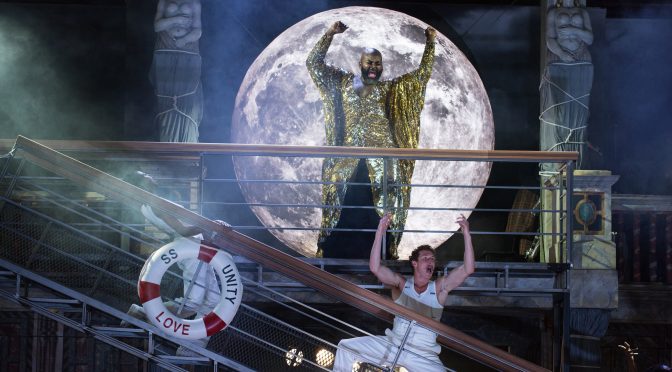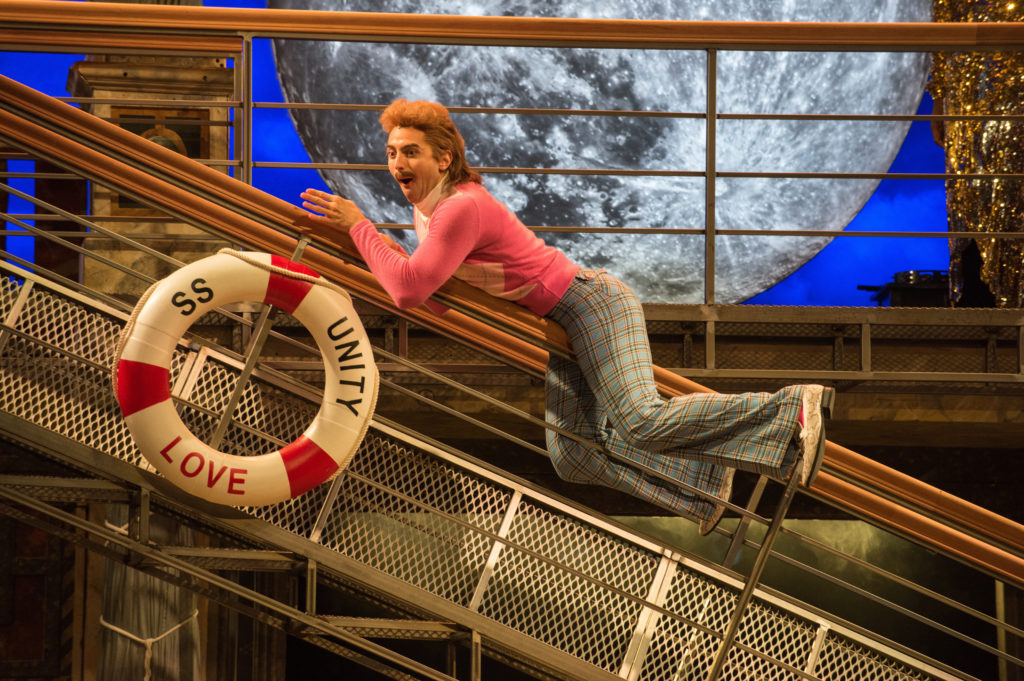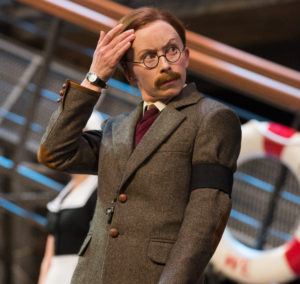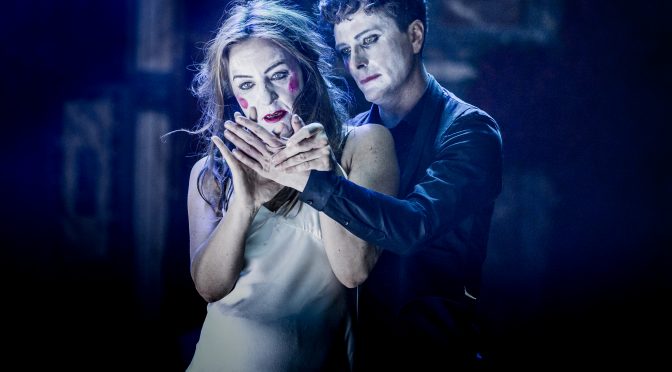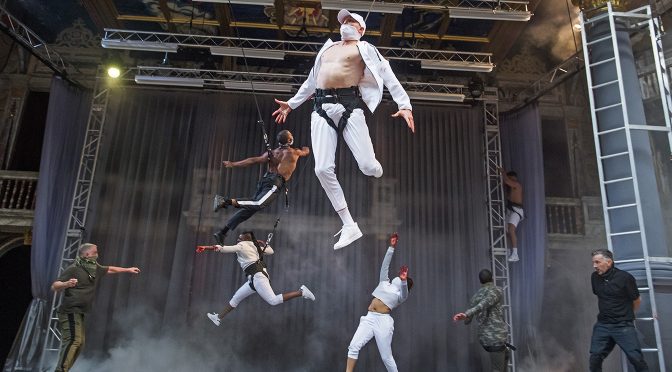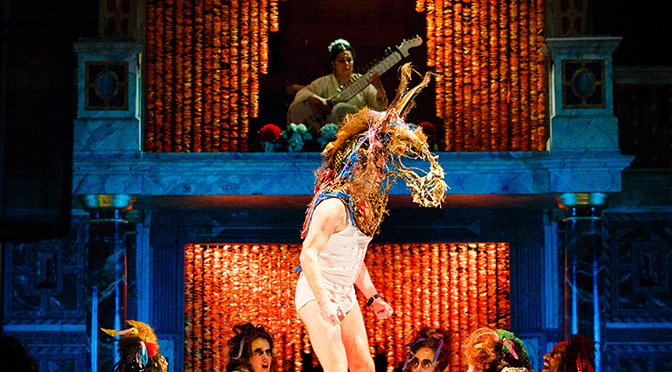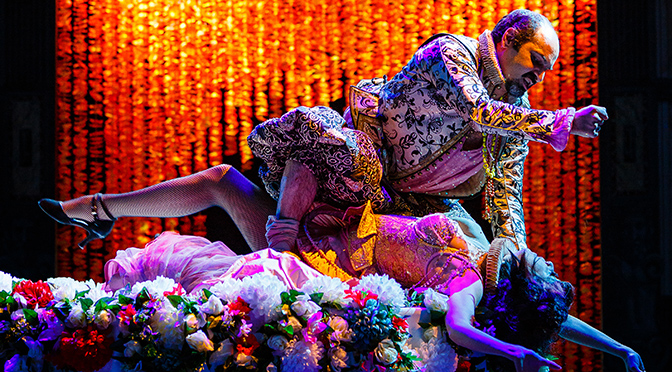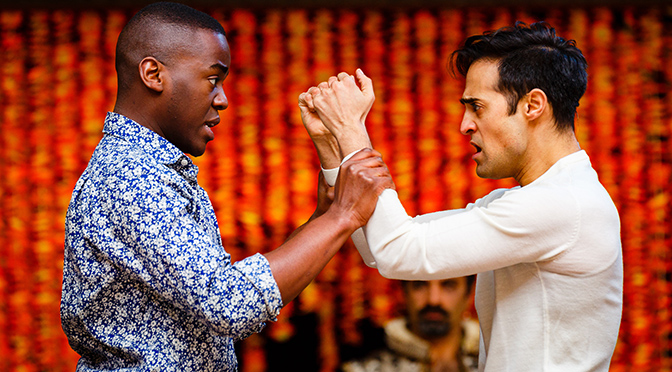Nobody brings film to the stage like director Emma Rice. Following hits such as Brief Encounter and Romantics Anonymous it’s now the turn of Percy and Eleonore Adlon’s 1987 movie. The story of an unlikely friendship between two women – Brenda and Jasmin, estranged from their partners in the remote titular location – has a quirky appeal. While the adaptation fails to move beyond appealing eccentricity, a drop in standards for Rice is still a show worth seeing.
As a Rice fan, I’d argue the problem lies with the source material. I’m puzzled by the choice. There’s a fairy-tale charm in the story of a German tourist and a hassled coffee shop owner… but little else. The women’s quirks, as well as those of Brenda’s family and clientele, replace plot. Maybe this was the attraction – Bagdad Café is novel and Rice is one of the most original theatre makers around – but, frankly, too little happens.
It is a collection of characters to enjoy. Much is made of former “songbird” Brenda and her current sorry state struggling to run a business. Sandra Marvin takes the part and is believable. But it’s her husband, performed by Le Gateau Chocolat, who complains about how hard she works – it’s not clear why we should share that problem. The show’s heroine Jasmin, who walks out on her husband in a scene with no dialogue, is a touch too mysterious. Patrycja Kujawska portrays the character’s quiet power well as she changes the lives of those she ends up living with. But she encounters oddities rather than odds, as conflict and tension are absent. Even learning magic tricks comes suspiciously easily. With little backstory, secondary characters are pleasant to watch but suffer a similar complaint: there are lovely turns from Gareth Snook and Sam Archer as a couple of misfit hippies, but you can’t help wondering how they ended up in the story and what they are there for.
The music for the show, ably directed by Nadine Lee, consists of too few tunes (the show relies heavily on Bob Telson’s hit, Calling You). And the numbers are truncated. There’s a defence for this – Bagdad Café isn’t trying to be a conventional musical. But the show’s originality ends up frustrating. It’s down to the theatricality of the production to hold our interest. Rice and her cast attempt this admirably. There are lovely touches with puppetry and movement (credit here for John Leader, Sarah Wright and Etta Murfitt) that make for plenty of memorable moments – it’s almost enough.
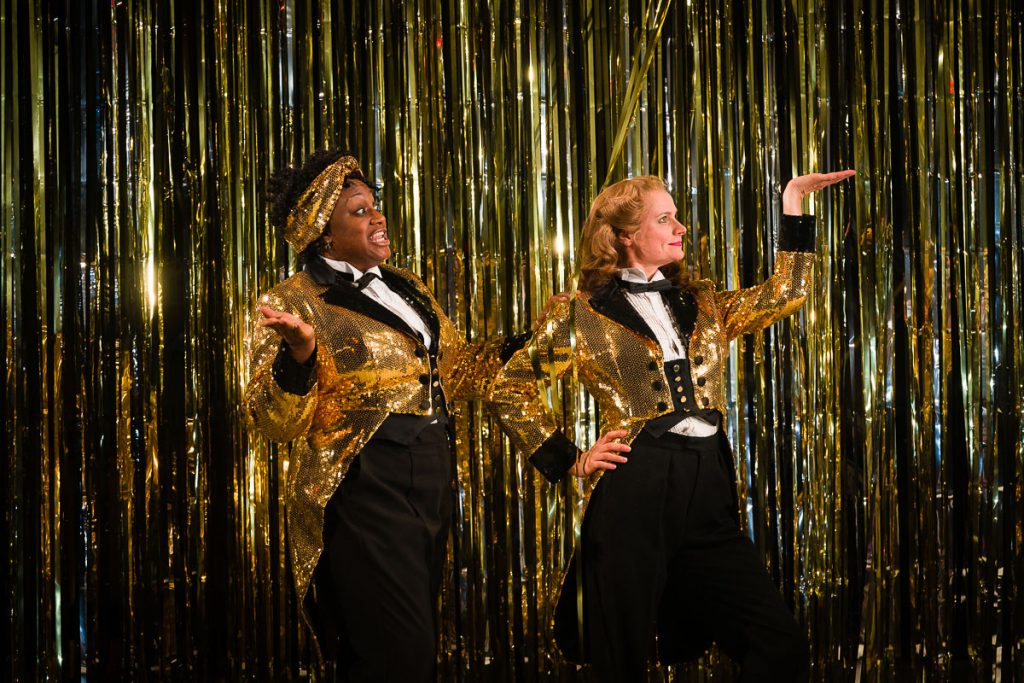
A world is vividly created. And even if it puzzles too much to entirely suspend disbelief, it is enchanting. There’s not much to Bagdad Café apart from atmosphere. But what an atmosphere! A finale where Brenda and Jasmine put on a show gave me goosebumps. The show’s feelgood simplicity coalesces to make sure we leave the theatre happy. And an encore, showing an accompanying digital project for the production, further confirms a striving for originality that wins admiration. The conjuring here is more than tricks that Jasmine enjoys on stage, it’s theatrical magic of the kind Rice excels at.
Until 21 August 2021
www.oldvictheatre.com
Photo by Steve Tanner

